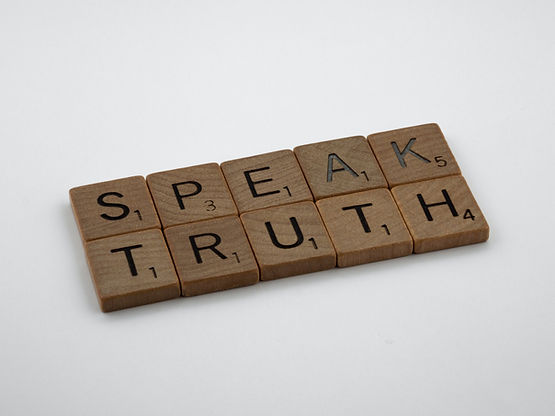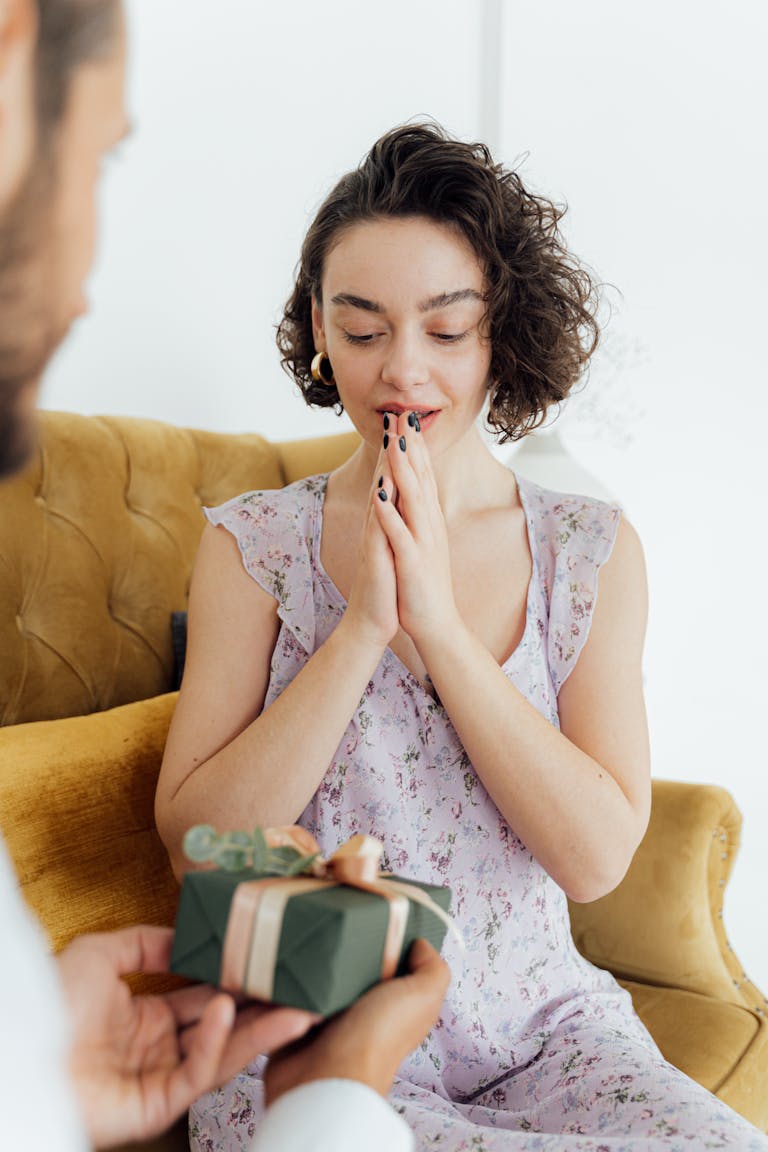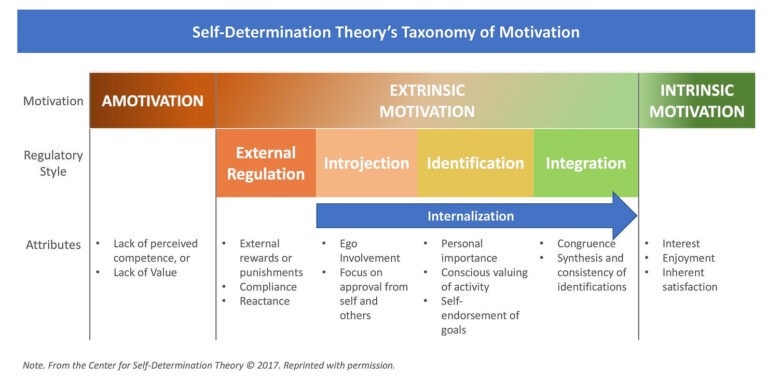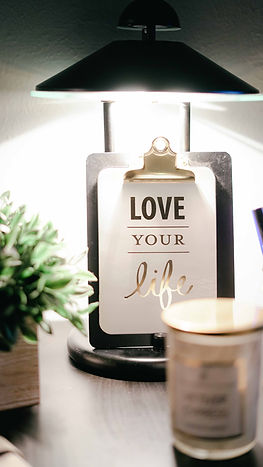These 3 Self-Healing Questions Will Change Your Life
A couple of weeks ago I drove nine hours to spend the holiday weekend with my best friend. I was within the seven days before my period, and I’d just finished up a particularly difficult training block. I left feeling physically exhausted and with lower emotional capacity, but also the desire to connect with my buddy.
On the way there, driving a route I was unfamiliar with, I stopped at an off-the-beaten-path gas station, desperate for a bathroom and feeling incredibly keyed up. In my haste and haze of anxiety, I paid for gas and was given far less change back than I should have been given. I recall making a mental note when the woman behind the register handed it back to me. It was in a different currency, so I couldn’t do the math quickly. But I hurried back to my car and just remember feeling like all I wanted to do was keep moving. I had so much pent-up energy, swirling and chaotic! I sat in the driver’s seat with my hands on the wheel and before I started the engine took a deep breath and said to myself, “Breathe, Kori. You are okay.”
As I was driving I figured out just how much she short-changed me, and in flew a slew of self-flagellating thoughts:
“How could you be so stupid?”
“Why didn’t you figure it out while you were there?!”
“She just totally took advantage of you!”
Then, as quickly as the thoughts punched me in the face, I was embraced by loving arms and heard, “You can let it go. You were in a frenzy, unable to focus or think clearly. You are not stupid; you were in a state of fight-or-flight energy, Kori. And if she needed the money that badly, let her have it. You need not concern yourself with it any longer. You’ll be well prepared for next time…if there is a next time.”
What Am I Practicing?
Now, it wasn’t like I was hit by a lightning bolt and suddenly felt completely fine, like the incident never happened. Not at all. In fact, when I got to my friend’s house, it was one of the first things I shared with her, tears streaming down my face. But what I was hit by were all the physical sensations that happened inside of my body when I was blasted by those caustic, biting words. I felt like I was shrinking, contracting, and being tied up in knots, and it felt terrible! Those words were exacerbating the very feeling I had stopped at the gas station with, sending me into a sense of helplessness and stuckness. Yet I had enough clarity to understand that I was not at all helpless, nor was I stuck. I was safe. I was uncomfortable, for sure, but I was absolutely safe, absolutely okay, and I could come back to the question I’ve asked myself so many times before when I need a touchpoint and direction, “What are you practicing, Kori?”
Many of us have a habit of speaking harshly to ourselves. It’s been practiced, over and over and over again. Thinking about this another way, we have parts of us that blast us with criticism, and they’re well-practiced, never having learned another way. Our true, authentic Self (check out my series called Who Am I?), however, speaks only with compassion, creativity, clarity, connection, confidence, courage, and calm, so we can all know that if we hear a voice that comes through with meanness, it’s not our core Self. There’s a part of us that’s trying, in the way it has learned, to protect us from deeply vulnerable feelings that it believes we cannot handle.
How Old Do I Feel Right Now? When that situation occurred and those harsh voices got really loud, I also could have checked in with myself by asking “How old do you feel right now, Kor?” I’d say I felt about 5 years old. Asking this question can help us tease out where we might have old pain from the past that needs our attention and care, in a way, perhaps, that we didn’t receive when we needed it and when we didn’t have the capacity or skill to offer it to ourselves!
All of us know what it feels like to be “triggered.” Emotionally, we are responding to cues that are reminiscent of the original experience, and our bodies are attempting to protect us from feeling as awful as we felt before! If I’d pulled over and attempted to trace the emotional trigger back in time, I may have been able to land on a particular situation or incident, but that wasn’t a realistic choice at the time. All I needed at the moment was to remember that whether we’re 5 or 15, as children, we’re developmentally self-centered, so it’s normal to turn the blame or fault toward ourselves when something doesn’t go well because we’re reliant on the big people in our lives. It’s far too scary to think they are incapable when their love and understanding are what matters most.
The critical words that sprung up were from another part of me that developed to prevent more vulnerable emotions from overwhelming me when I was younger– emotions connected with feeling unlovable, too much, not enough, or invisible when the big people either didn’t notice, weren’t available, or didn’t know how to help! If you re-read the critical statements above, you can see how, as a young person, parts of me began to shift into specific ways of believing, and in turn, acting, in an attempt to ensure I could get my needs met.
If I help everyone around me feel better…
If I don’t show up with my own emotions or needs…
If I can anticipate what those around me need…
Let’s look at each of these beliefs briefly.
I am, in fact, a therapist and coach. I do, absolutely, love helping others. Here’s the difference, however, in my approach from what I learned to be and do as a child: I see my role not as a person to help people feel better; I see myself as an advocate for others learning to become better feelers. The former position had me moving in to save and protect people from their own work and the intensity of emotion in an effort to get something myself, by hiding myself. In a little girl’s mind, if mom is happy and content, and I am not causing trouble, I will receive more love and attention. See the difference?
I do want people to feel better, and to live powerful, purposeful, fulfilling lives, but I cannot forego my own needs and emotions to facilitate this. I’ve learned to separate the two, so they don’t get tangled up. I have needs and emotions. You have needs and emotions. I will show up with them, with you, if it’s a trustworthy respectful space between us, and I will show up for the parts of me that experience them, with trust and respect. I will honor what presents itself.
I do anticipate the needs of others often. For most of us, it feels good to be helped, and to know we’re not alone, that the burdens of life are shared. I can soothe the fears of the little girl who believed she needed to know exactly what to do and when to do it in order to be worthy of the goodness of others, and I can trust that others will love me when I’m not doing something for them. If I’m in a relationship that appears to only appreciate me when I’m giving, I’m going to question how and in what ways it is a healthy one or not and gather information as I take care of and give to myself.
This leads me to the third question I invite you to walk with.
If I were to be more fully me…
I’m working with a woman who has had gastric bypass surgery and shared with me recently that this is something she is deeply embarrassed about. She wants no one to know, particularly because she still lives in a larger body. She has internalized the belief that there is something wrong with her, which is what most people who diet repeatedly and end up weighing more, also believe. When she’s with others and eating, she will purposefully eat beyond satisfaction and beyond fullness, so no one will even suspect that she’s had surgery and then judge her for a lack of discipline or willpower. This makes sense to me, and yet, people are so judgemental of weight, size, shape, as well as how other people eat anyway, as she was telling me this I just kept thinking that she’s damned if she does and damned if she doesn’t. She is foregoing her truths and pretending about so much, and to what end?
We’re working with this sentence stem so she can acknowledge all the ways in which she is hiding. We can look gently at each of them; get to know the parts of her that either feel the vulnerable emotions or that drive her toward behaviors to avoid them, and help those parts release the heavy burdens they carry.
This question also invites us to thoughtfully, and ideally in an embodied way, connect with all the ways in which we are behaving and thinking automatically and conditionally. Are you doing something because it has become your default, or does it serve a generative purpose? Are the patterns you’ve developed a result of conscious and intentional inquiry or are they driven by internalized beliefs or stories that belong to the culture, to generations before you, or to the people you commune with most often?
Asking these questions doesn’t necessarily change our behavior, but asking can prompt awareness because we’re facing something and turning toward things that we’ve avoided. When we commit to understanding the truth, it means we are on the path to stop lying to ourselves. If becoming the person you’ve always wanted to be is important to you, these 3 questions will change your life. But you must be open to where they lead you.

Reach out and let me know which one(s) you’re walking with and what was revealed. How do you plan to move forward with these truths?






